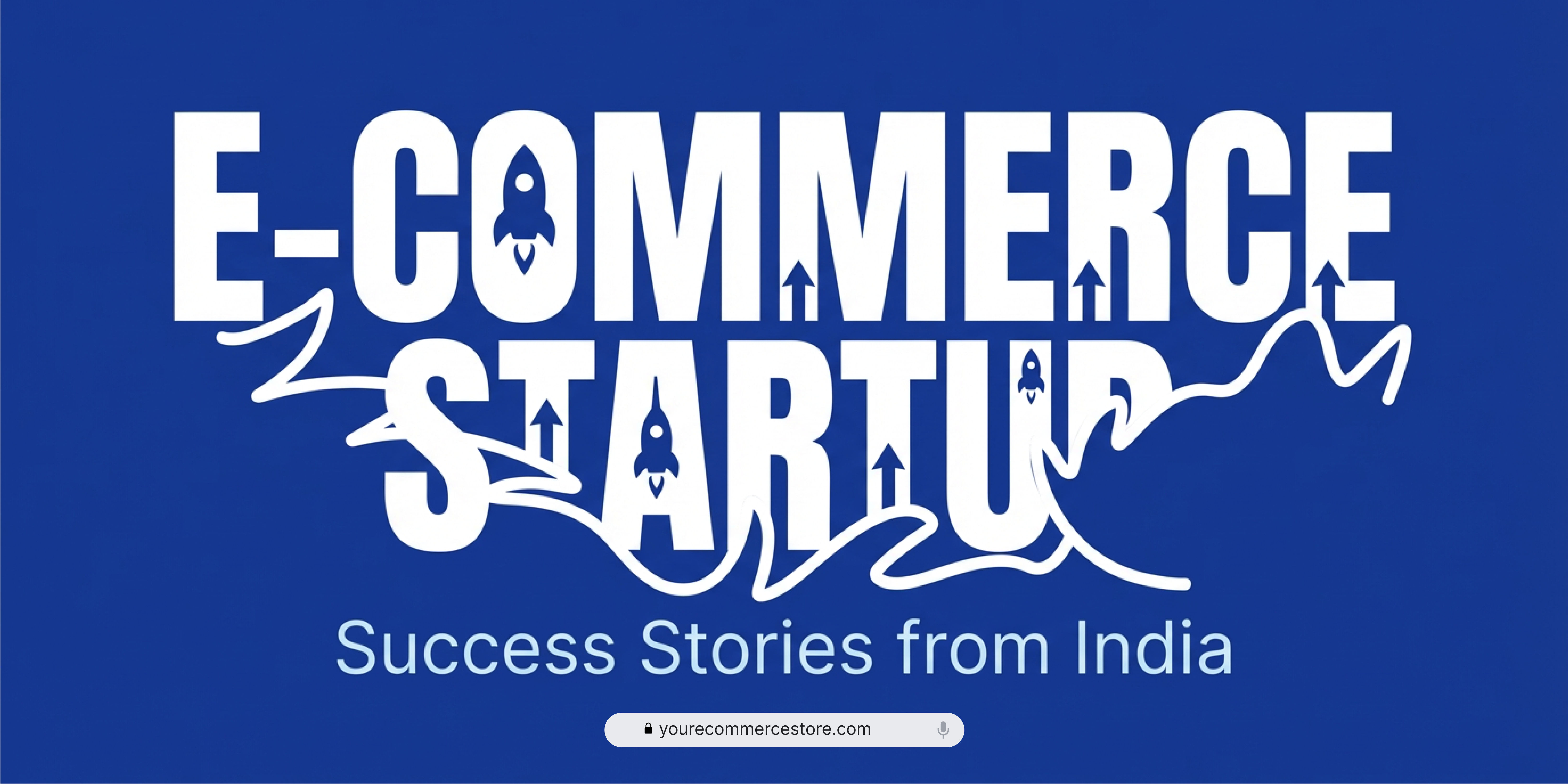India's e-commerce market has experienced explosive growth over the past decade, with a massive shift towards online shopping across urban and rural areas alike. Startups in this space have navigated fierce competition and complex logistics, using creativity and cutting-edge technology to scale their businesses successfully. Today, we’ll explore some of the most inspiring e-commerce success stories from India that prove the power of perseverance, innovation, and adaptability.
1. Flipkart: The Pioneer of Indian E-commerce
No discussion on Indian e-commerce startups would be complete without mentioning Flipkart. Launched in 2007 by two former Amazon employees, Flipkart initially sold books online before expanding into electronics, fashion, and more. The company's success can be attributed to several key factors:
- Customer-Centric Approach: Flipkart’s commitment to customer satisfaction, including innovative services like Cash on Delivery (COD), played a major role in building trust in online shopping.
- Scalability and Investment: With steady rounds of funding and strategic acquisitions, Flipkart scaled quickly, eventually becoming one of India’s largest e-commerce platforms. In 2018, it was acquired by Walmart for a staggering $16 billion.
Key takeaway: A relentless focus on the needs of the Indian consumer and strong partnerships can fuel a startup's rise to the top.
2. Myntra: The Fashion E-commerce Giant
Myntra, another game-changing startup in the Indian e-commerce landscape, started as a personalized gift-selling platform but pivoted to online fashion retail in 2011. Myntra became a leader in this niche, focusing on premium fashion brands and offering a highly curated experience.
- Focus on User Experience: Myntra emphasized mobile-first experiences and was even one of the first to experiment with an app-only platform in 2015, capitalizing on India’s rapidly growing smartphone user base.
- Tech-Driven Personalization: Leveraging data and AI, Myntra has delivered personalized fashion recommendations to users, improving both customer satisfaction and retention.
Key takeaway: Focusing on a specific niche like fashion, along with tech-driven personalization, can set an e-commerce startup apart from the competition.
3. Nykaa: The Beauty Retail Revolution
Nykaa is a beauty and wellness e-commerce platform founded in 2012 by former investment banker Falguni Nayar. Nykaa’s success story is unique as it filled a significant gap in the market for beauty products. What sets Nykaa apart?
- Omnichannel Strategy: Nykaa didn’t just limit itself to online sales. It expanded its presence with physical stores across India, enhancing its brand visibility and customer trust.
- Content and Community Building: Nykaa leveraged content marketing with beauty tutorials, product reviews, and influencer collaborations to engage its audience, educating customers about the products while driving conversions.
Key takeaway: Combining an online and offline strategy with an engaged content-driven community can fuel sustained growth.
4. BigBasket: Redefining Online Grocery Shopping
BigBasket, founded in 2011, became a go-to platform for online grocery shopping in India. The startup solved key pain points in the grocery supply chain by focusing on quality, variety, and timely delivery.
- Logistics Mastery: BigBasket built a robust supply chain, ensuring fresh and diverse product availability while maintaining strict quality control.
- Partnerships and Acquisitions: By partnering with local farmers and expanding its supply chain through acquisitions, BigBasket was able to scale effectively, gaining a significant share in the growing Indian online grocery market.
Key takeaway: Mastering logistics and building a reliable supply chain can help e-commerce startups thrive in essential goods sectors.
5. Lenskart: Revolutionizing Eyewear Retail
Lenskart, founded in 2010 by Peyush Bansal, sought to address the limited access to affordable, quality eyewear in India. The company’s tech-driven approach has made it one of the most successful omnichannel eyewear retailers in the country.
- Innovative Tech: Lenskart introduced a virtual 3D Try-On feature, allowing users to try on eyewear from the comfort of their homes. This tech integration gave customers a unique, seamless shopping experience.
- Omnichannel Model: Lenskart combines online retail with offline stores, ensuring customers can get their eyes tested and purchase glasses either online or in-person.
Key takeaway: Utilizing technology to improve customer experience, alongside an omnichannel approach, can create new opportunities for growth in competitive markets.
India's e-commerce landscape is dynamic and brimming with opportunities. Startups like Flipkart, Myntra, Nykaa, BigBasket, and Lenskart have shown that success lies in understanding the needs of your market, mastering technology, and being flexible enough to adapt to changes.
Whether through customer-centric innovations, omnichannel strategies, or data-driven marketing, these e-commerce giants have set the standard for what’s possible. As India continues to grow as an e-commerce powerhouse, there’s no shortage of opportunities for startups to make their mark.
If you’re an aspiring startup looking to craft your e-commerce success story, contact RLVNT Studios today to build a website and brand that stands out in this competitive market. Let’s bring your vision to life.
S.V.A.X. signing off ⚡














